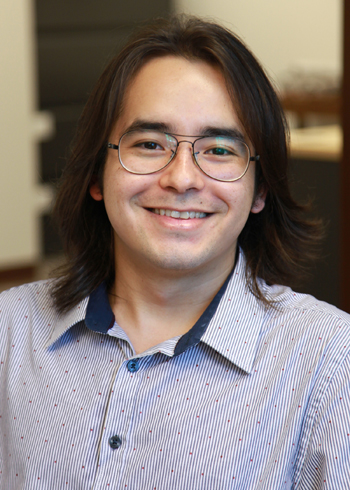As the closing ceremonies of 2016 Olympic Games draw near, a much lesser known international effort for Brazil comes to an end. The country introduced its “Science Without Borders” program in 2011 with the lofty goal of qualifying 100,000 Brazilian students and researchers to study at the top universities in the world.
Marcelo Aleixo Da Silva spent the summer at Oklahoma State University as one of the last of the 100,000 students to take advantage of the government-funded program. While Brazil has not renewed Science Without Borders, Da Silva was grateful to have been a part of it and OSU professor Charles Abramson jumped at the chance to welcome the student to Stillwater.
“He seemed like a good fit in terms of his interest and also wanting to learn new skills,” Abramson said.
While in Stillwater, Da Silva worked on an interdisciplinary robotics project Abramson helped get off the ground at OSU in 2015. Da Silva had not worked with robots before and the opportunity to research human-robot interaction with several entities on campus was attractive. It also allowed him to brush up on his English speaking skills, especially valuable to him as a computer scientist.
“It was very important for me to come here,” Da Silva said. “Every article in computer science is published in English first.”
In addition to the language barrier, Da Silva had to learn a different style of education. He found classes in the United States to be much more interactive and with many more projects, which he feels is a good thing.
The summer internship at OSU completed his 12-month stay in the United States. He spent the bulk of his time at Georgia State University in Atlanta, where he studied computer science – and collected a 4.0 GPA. While Science Without Borders was a non-degree program, Da silva will return to João Pessoa, Paraíba, Brazil to complete his studies and hopes to work in academia.
He will also go home to his 21-month old son. Will Da Silva teach him English?
“Yes,” he said. “And programming.”
